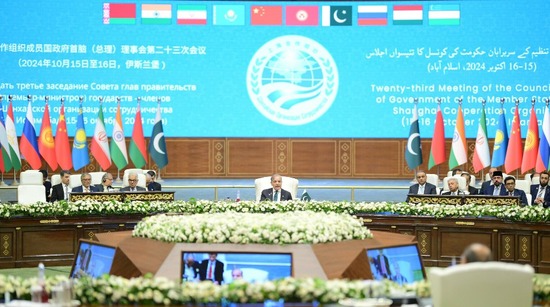1. Overview of the SCO: A Regional Powerhouse
Formed in 2001, the Shanghai Cooperation Organization is a regional alliance that fosters intergovernmental partnerships, especially in economic development. It consists of eight permanent members: China, India, Kazakhstan, Kyrgyzstan, Pakistan, Russia, Tajikistan, and Uzbekistan.
These nations, along with observers and dialogue partners, represent a large share of the world’s population and economy. Built on principles like mutual trust, respect for sovereignty, and shared benefits, the SCO’s economic model has delivered significant advantages such as trade expansion, infrastructure development, investment growth, and energy security.
2. Trade Opportunities Enhanced through the SCO
The bloc removes trade barriers like tariffs and customs duties, making intra-regional trade more efficient and profitable for member states.
3. Shared Infrastructure Projects among SCO Countries
Infrastructure improvements are central to the bloc’s mission. Projects enhance connectivity through transportation networks, energy corridors, and digital pathways.
a. Partnership with China’s Belt and Road Initiative (BRI)
Major developments like the China-Pakistan Economic Corridor (CPEC) serve as examples of effective collaboration. These projects link regional markets to the global economy.
b. Infrastructure’s Role in Economic Growth
Modern transportation in Uzbekistan, backed by the bloc’s financing, has turned the country into a vital trade hub—raising its GDP by 15% over the past decade.
4. Encouraging Investment and Economic Partnerships
The organization hosts investment forums to support cross-border ventures, especially in emerging economies.
a. Attracting Foreign Investment to Member Nations
Countries like Uzbekistan and Tajikistan have drawn investors to sectors such as energy, tourism, and technology. In 2022, Uzbekistan alone saw a 25% rise in foreign direct investment.
5. Energy Cooperation and Resource Management
With resource-rich members like Kazakhstan and high-demand nations like India, the organization facilitates balanced energy exchange.
a. Cross-Border Energy Projects
Pipelines such as the Central Asia-China Gas Pipeline ensure steady energy supply across borders, benefiting all participants.
6. Support for Small and Medium Enterprises (SMEs)
The SCO recognizes the value of SMEs by providing funding and easing entry into regional markets.
a. Market Access and Expansion
With the help of the organization, a textile firm in Uzbekistan expanded to Kazakhstan and Russia, creating jobs and boosting export revenue.
7. Promoting Tourism and Cultural Cooperation
Travel and cultural exchange are key components of the SCO’s development strategy, fostering mutual understanding and economic benefits.
a. Boosting Regional Tourism
In 2023, over one million visitors traveled to Uzbekistan from member states, significantly boosting the local economy.
b. Cultural Programs for Unity
Joint initiatives promote harmony and collaboration through music festivals, student exchanges, and art events.
8. Collective Action on Global Economic Challenges
The bloc provides a platform for joint strategies to face inflation, trade wars, and global recessions.
a. Coordination During the COVID-19 Pandemic
Member states collaborated to ensure cross-border supplies and shared resources and medical data during the crisis, highlighting the organization’s resilience.
یہ بھی پڑھیں: WhatsApp’s New Contact and Group List Feature




